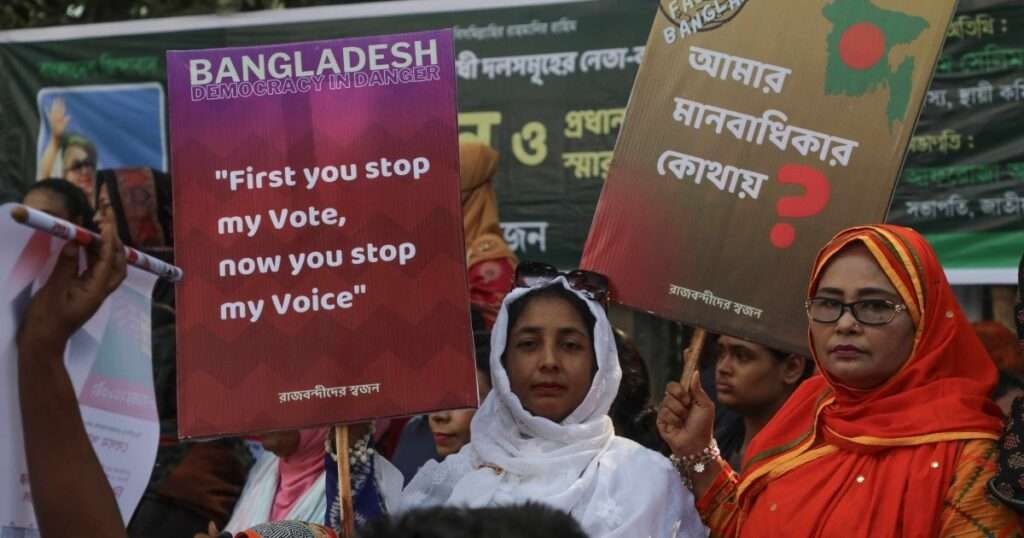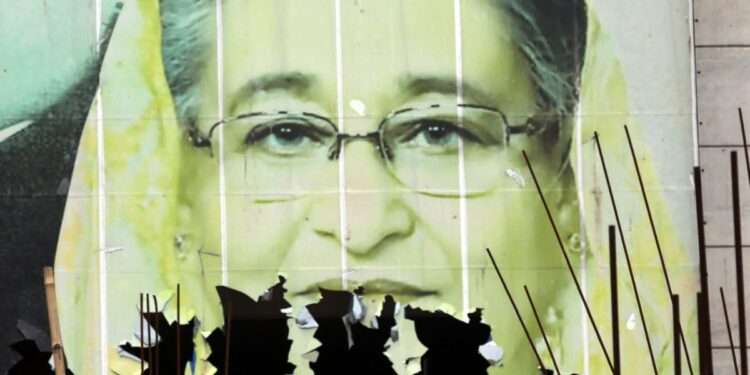Bangladesh which emerged after the 1971 Bangladesh Liberation war has multiple changes of power and political leadership and has been a witness to extra judicial murders of politicians including of members of Sheikh Hasine’s family and coups by the military. In Bangladesh there were weeks of riots, after which the Prime Minister Sheikh Hasina resigned, as the army chief said on Monday in the address to the people. This event has again brought into focus awareness on the country’s a politically unstable nation characterized by many interferences and coups.
At the same time, the military has kept implementing a constantly functioning curfew, while officials have cut off the internet in order to control the situation.
Previously, approximately one hundred people perished and many were wounded on Sunday as police forces and protesters against the government escalated the conflict. The student protests to stop the quotas imposed in placements of government jobs have expanded to an antiadministration protest now.

The Purpose of the current scenario:- Bangladesh
The large-scale rallies of Bangladesh were instigated from the student movement for the reform of the civil service quota system that reserves up to 30% government posts for the relatives of war veterans of the 1971’s indepenent of Pakistan. Students alleged the current quotas unconstitutional, favouring allies of the incumbent Prime Minister Sheikh Hasina’s Awami League; the system was bigoted, they said.
That is why they embarked on advocacy for replacement of the quota system by a merit system. The demonstrations grew larger as it progressed with people protesting other prime minister Hasina’s government, calling it authoritarian and oppressive for suppressing dissenting opinions. Even with measures some of which are; government closed down all education institutions, the situation did not subside.
The current demonstrators’ group is ‘Students Against Discrimination’ which was the focus of previous job quota protests. Picketing over the quota reforms ceased after the Supreme Court on July 21 eradicated most quotas. However, protesters went back to the action last week with demands for Hasina to apologise for the violence, reconnection of the internet, opening of schools, and release of detainees.
The protests have continued over the week
The protests have continued over the week and transformed into a regime change to oust Hasina as victims of last month’s tragedy demanded to be vindicated. The student group launched a countrywide non cooperation movement that begins sunday with one and only demand – Hasina’s resignation.
The demonstrators attribute the violence that happened in the July protests to Hasina’s administration. Some of the readers and human rights organizations accused Hasina of using the excessive force against the protesters, something that the government deny. As violence erupted again on Sunday, Hasina said the persons who perpetrate violence are not students but those who want to destabilize the country. The student group has declined a dialogue with Hasina on the issue.
Pogroms spread in 39 districts of Bangladesh and targeted many Government buildings, and residences of some public officials, 20 offices of the Awami League party, Police stations and other government establishments. These buildings were targeted, burnt, and destroyed by painting and fire.

Posters were shown of protest
Posters were shown of protest with the Awami League and its related group members clashing in different regions. Also, the houses of MPs belonging to the ruling party, State ministers, Parliamentarians, party leaders and offices of the Awami League were attacked in at least 14 Flashpoints showing the extent of the protest.
Preliminary report indicated that Bangladesh was expecting formation of the temporary government and protest organizers from the Students Against Discrimination said they will have a talk with the army chief of Bangladesh about the protests. Student leader Muhammad Nahid Islam said that they have not attained all their goals though they were striving to attain those; after the resignation of Hasina the group’s goal is to ‘eradicate oppressive systems permanently. The leaders also affirmed that the group will not accept any government led or backed by the military.
Esch told the protest group that the Interim Government should be headed by Yunus, who is a social entrepreneur and a banker who was awarded Nobel Piece Prize in 2006 for developing micro financing that helped eradicate poverty in Bangladesh.
While Hasina unwillingness to continue as prime minister was commendable, some Bangladeshi citizens are concerned about the future and the country’s attempts to fill the leadership void



